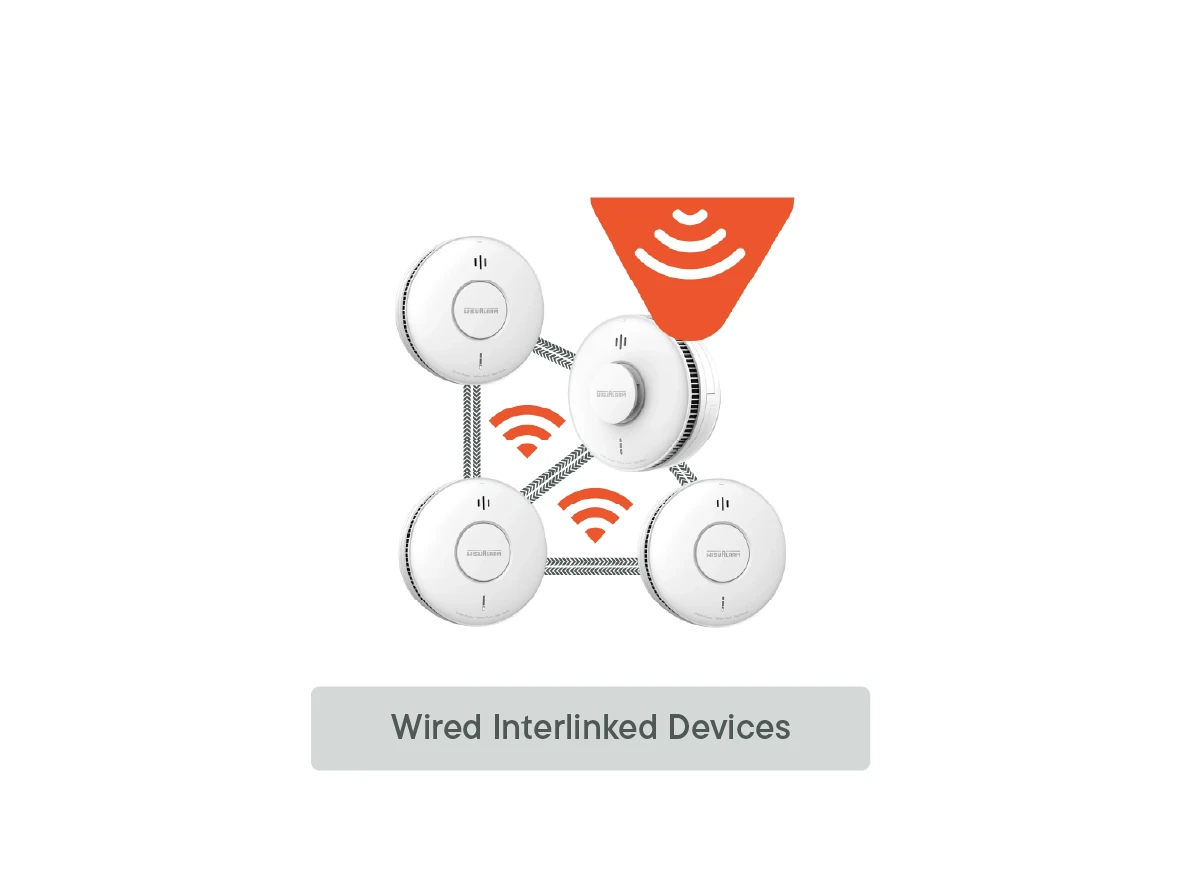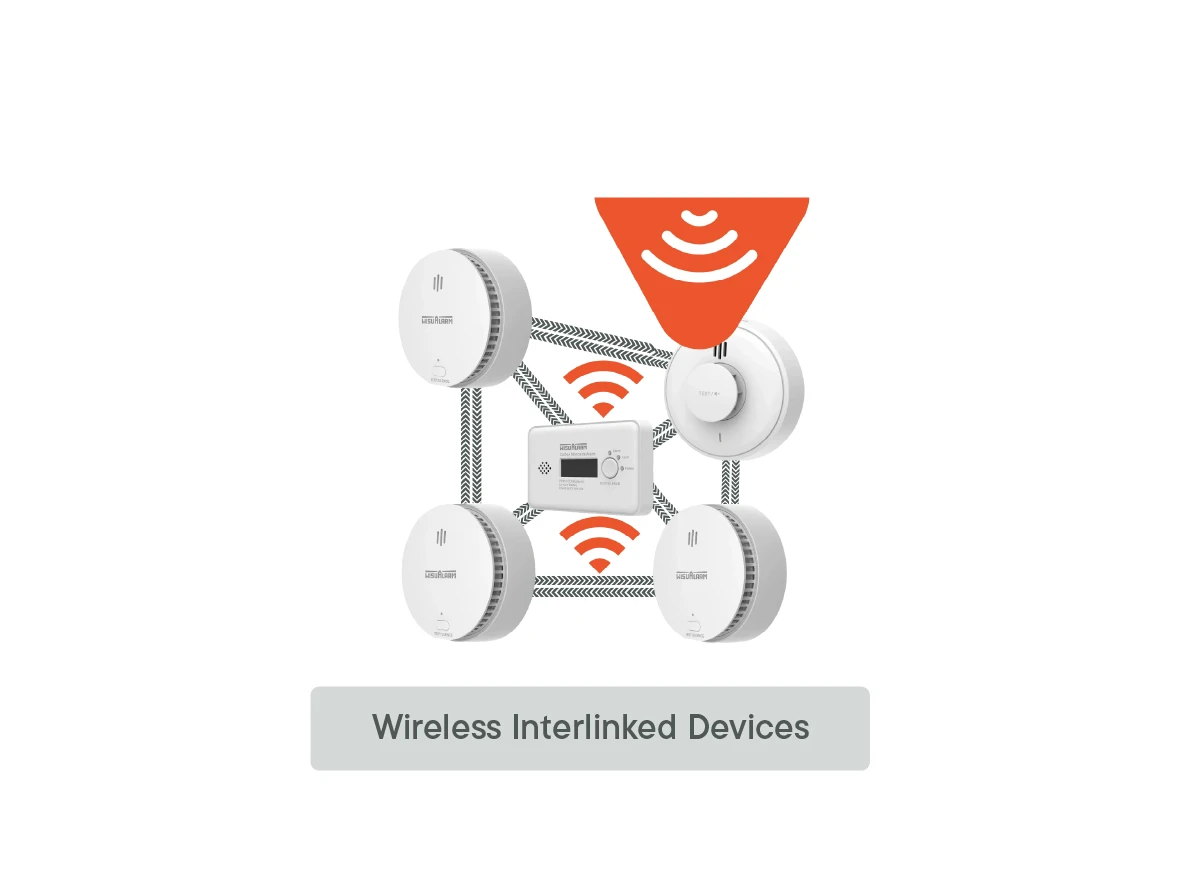
Need assistance?
Need Assistance? Call Us 0330 058 0630
Did You Know? We Sell Fire Alarm Systems as Complete Kits. Shop Now
Protect your home with reliable, cutting-edge fire alerts. We offer a range of stylish smoke and heat detectors, as well as carbon monoxide detectors, all expertly designed for residential use. Choose from interlinked, wireless, and Wi-Fi-enabled options to ensure comprehensive protection and peace of mind. Whether you're dealing with a fire or a carbon monoxide leak, our detectors provide the safety your property deserves.
We stock a range of smoke alarms specially designed to protect you and your home. Our domestic detection range encompasses both mains powered (hard wired) and battery powered detector options.
If you’re looking for something more portable, we recommend our Standalone range of detectors. For comprehensive coverage, take a look at our mains powered interlinked devices.
We stock a range of interlinked devices available in battery powered (wireless) and mains powered (wired) options.
A hardwired interlinked smoke alarm system is wired to connect to the mains and is powered by electricity. These alarms, once connected to the mains, can act as one synchronised system, alerting all the alarms if one is triggered.
Hardwiring smoke alarms into your house can be expensive as an engineer may be required to install the devices.
Additionally, if you move house, it may be difficult to remove and install the system in your new home.

A wireless interlinked smoke alarm system removes the hassle of hardwiring an alarm. These alarms use radio technology to connect to each of the alarms wirelessly.
Similar to the wired interlinked smoke alarm system, wireless smoke alarms ensure that the alarms work as a synchronised system, alerting all alarms if one is triggered.


While smoke alarms are suitable for living spaces such as living rooms and bedrooms, they are not suitable for dusty, smoky, steamy, such as bathrooms, garages and kitchens.
Rather these environments are better protected by a heat alarm. This is because smoke, dust and steam will trigger a smoke alarm. While heat alarms detect extreme heat as a result of a fire.

Yes, there are smoke alarms designed for those hard of hearing. We stock vibrating pillow units, suitable while someone is sleeping as well as strobe alarms as a visual aid.

Yes all homes require a carbon monoxide detector. Carbon monoxide (CO) is produced by fuel-burning appliances. If these appliances malfunction, they can risk leaking carbon monoxide. We recommend that you have carbon monoxide detectors located near living spaces and near fuel-burning appliances, such as boilers and gas stoves.

Smoke alarms typically last 10 years. After this period, they should be replaced to ensure continued reliability and safety. This is because the parts inside these devices will deteriorate over time.

Smoke alarms should be installed on every level of your home, inside each bedroom, and outside sleeping areas. Mount them on the ceiling or high on the wall, at least 10-12 inches from the corner.